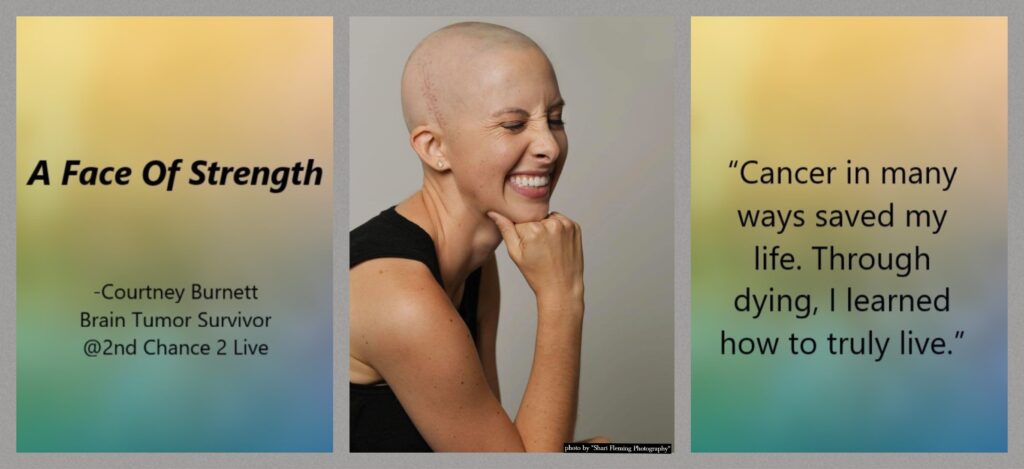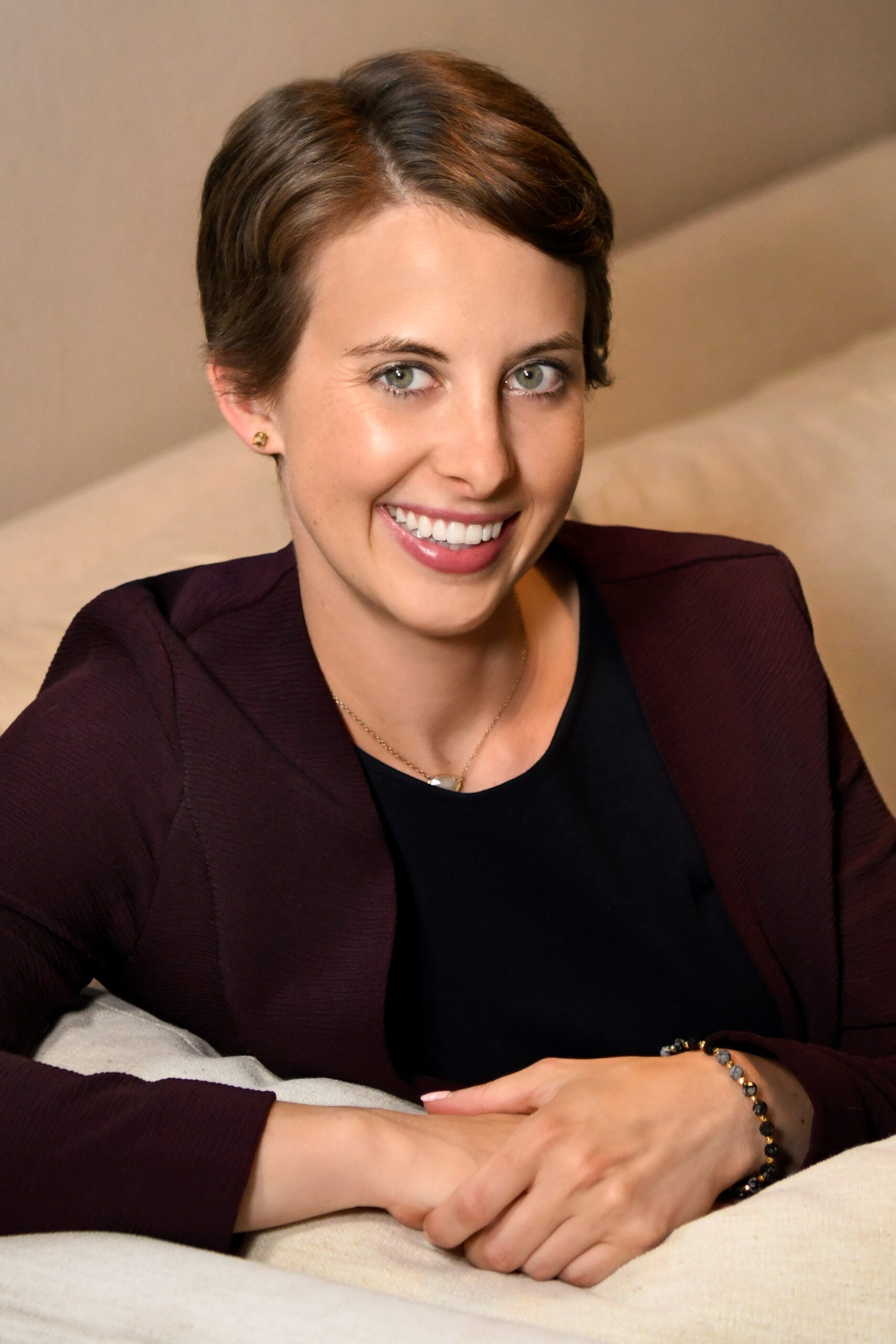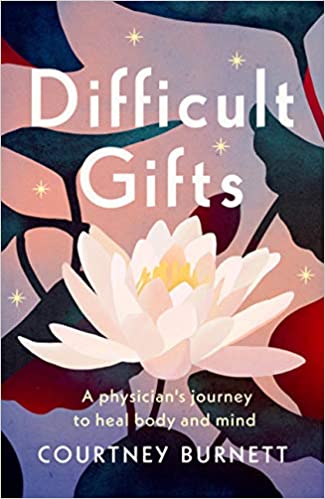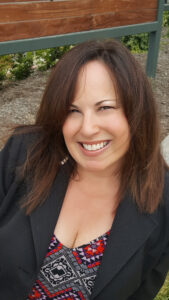Cover Photo by Shari Fleming Photography.
“I never want anyone to say, ‘That girl wasted her time.’ Instead, I hope they say, ‘She took her suffering and realized she could use it to find and spread joy.’ This became my mission.”
– Courtney Burnett
An Interview with: Courtney Burnett, author of Difficult Gifts: A physician’s journey to heal body and mind.
Through her inspiring memoir, Difficult Gifts: A physician’s journey to heal body and mind, Courtney Burnett provides a roadmap to finding happiness and joy in the midst of suffering.
Published just six months ago, Courtney takes readers through an extraordinary journey that began in January of 2020 when she was 29-years-old and on her way to Chiang Mai, Thailand for a medical residency rotation offered through the University of Minnesota. Having separated from her husband a few months prior to the trip Courtney embarked on the journey alone and frankly, I wouldn’t be surprised if she set a world record as the person who experienced the most life transformations in the shortest period of time.
Soon after arriving in Thailand, Courtney started to have odd sensations in her left hand and trouble swallowing. She deduced that she was having focal seizures and advocated for an MRI. Upon viewing the MRI she diagnosed herself with a brain tumor. This led to an emergency flight home from Thailand. Once back in the U.S. she underwent two intense brain surgeries, chemotherapy, more than 30 radiation treatments, and a divorce! To top it off, she went through all of this physically alone because it took place during the beginning of the COVID-19 pandemic! She even returned to work to field patient phone calls and questions as soon as she was able in order to help alleviate the burden of the pandemic on her colleagues. Throughout her experience, Courtney continued expanding her interest in Buddhist spirituality which she credits with helping her change her mindset and her ability to get through all of these things by herself.
Love, gratitude, acceptance, peace, serenity, life, compassion, friendships, family, joy, impermanence, happiness, shared human suffering, the interdependence of all beings…these may not be the themes one would expect to find in a memoir about brain cancer but Courtney weaves them through her book beautifully to demonstrate and teach the world about the good that can come out of what she refers to as, “difficult gifts.”
If you’ve been reading my blog for a while, you know how big I am on self-discovery, self-improvement, and self-actualization. Rarely, have I found someone who can use her introspection to translate life lessons and philosophies about changing one’s own mindset the way Courtney does as she seeks to answer the question, “How do we find happiness in a world where suffering continues to exist and always will?”
“I have malignant, aggressive brain cancer, and it will likely kill me someday. Despite this, I am happy.”
Wendy: Welcome Courtney. Thank you for setting aside time to participate in this interview. Reading your book was deeply impactful for me as I’m sure it was and will continue to be for so many others. I wonder if there is another soul on the planet who can lay claim to diagnosing her/himself with a brain tumor in a foreign country and then returning home to battle aggressive brain cancer during a global pandemic. At the beginning of your story, you mentioned you started to pen a fictional book but your real-life experience turned out to be better than fiction. How are you doing now?
Courtney: Hi Wendy. Thank YOU for taking the time to read my book and write such a beautiful summary of the story. I’m happy to say that at the moment, I am feeling great. So much has happened since the writing of Difficult Gifts. I recovered from two invasive brain surgeries, completed chemotherapy and radiation therapy–all with successful results. I owe much gratitude to my fantastic team of medical providers. Despite this unexpected journey, I was incredibly fortunate that my brain cancer did not impact my cognitive function, so I have been able to continue working as a physician. I also keep writing (posting updates on my own blog, www.elephantlotusbraintumor.com), and speaking at events to raise awareness for brain tumors.
Wendy: That’s wonderful, Courtney! For those who haven’t yet read your book, what is a “difficult gift?”
Courtney: I define a ‘difficult gift’ as a gift that teaches us, motivates us, changes us, and inspires us. It can be a situation, an experience, a feeling, a person, etc. that does not appear to be what we hoped for at first glance, but ends up being a gift in our lives.
“I define a ‘difficult gift’ as a gift that teaches us, motivates us, changes us, and inspires us.”
Wendy: Your adventure sounds truly terrifying. I can’t begin to imagine being a patient in a hospital in a foreign country during a medical emergency. How did your medical knowledge help you to advocate for yourself in a place where you didn’t speak the language? How were you able to move from fear to freedom?
Courtney: This is a great question and one that is difficult to answer succinctly. My own medical knowledge was both a blessing and a curse. At some moments, especially those in Thailand with a language barrier, I was very grateful to have a sense of what was happening from a medical perspective. At other moments, however, I felt that ignorance might really be bliss. Moving from fear to freedom was a true journey; one that took me a whole book to explain!
Wendy: What did you find to be one of the biggest differences between Thailand’s health care system and health care in the U.S.?
Courtney: In Thailand, the cost of medical procedures/visits is very clear from the start. This is not always the case in the U.S., unfortunately. It was quite nice as a patient to know from the very beginning what my bill would be.
Wendy: What was the most meaningful lesson you received while facing so many challenges during a global pandemic?
Courtney: Embrace change.
“Embrace change.”
Wendy: Out of all the challenges you went through during the timeframe you wrote about, what are you most grateful for?
Courtney: My spiritual beliefs, which helped me embrace the impermanence of every situation, including our lifespan. When we become aware that life is short, we learn not to take any of it for granted.
Wendy: You wrote a lot about the “strange juxtaposition of being a patient and a physician simultaneously.” You said, “In the end, one of the greatest difficult gifts of my global medicine experience was actually my experience being a patient.” How has this changed the way you practice medicine?
Courtney: In many, many ways! Being a patient has made me a better physician. I speak about this “difficult gift” often to medical professionals and invite anyone who is interested to see my upcoming events on my website for more details. (https://www.elephantlotusbraintumor.com/upcoming-author-events)
Wendy: The monk you spoke with from your hospital bed in Thailand provided advice that you often referred back to throughout your journey. What was the most powerful part of that exchange for you?
Courtney: Oh, I love this question, but if I answer it I’ll give away one of my favorite chapters of the book! So your readers should pick up Difficult Gifts to find out (smile).
Wendy: What do you think the key to happiness is?
Courtney: If I could answer that, I think I’d be a very rich lady! Haha! I don’t know, but I do believe that happiness comes from within. Changing our perspective, learning new things, having compassion for others–these are the things that will bring us happiness. Focusing on our own suffering is a sure way to lose sight of happiness. When we realize that everyone suffers, our own suffering becomes much less important and our perspective can change entirely. I also passionately believe in mindfulness and learning to embrace the little, ordinary moments. Those moments are where happiness is found.
“Changing our perspective, learning new things, having compassion for others–these are the things that will bring us happiness.”
Wendy: You offer so much great advice in your book. As a brain cancer survivor myself, I most loved your description of the difference between living and simply surviving. You said, “If we want to live, we have to find a way to switch from “When will…” to “Today, I will…”
As you know there are many in the brain tumor and cancer communities who grapple with the fear of when will my tumor or cancer return? What are a few ways we can turn this “when will” into “today I will?”
Courtney: I’m glad you found that idea helpful! I think it’s honestly as simple as that. Whenever you have a “when will” thought, we can try to stop it and switch to an actionable thought, “Today, I will…go for a walk. See a friend. Smile. Etc. Etc…”
Wendy: Congratulations on being named the keynote speaker for the American Brain Tumor Association’s (virtual) National Conference which will take place September 10-11. As a self-described “type A, neurotic life-planner…,” how is this different from what you thought you would be doing in September of 2021?
Courtney: Haha! Oh, it is different in every possible way! Never in my wildest dreams did I think I would find myself a motivational speaker. This is one of those moments when plans fall apart in all the best of ways.
Wendy: Is there anything else you would like to add before I let you go?
Courtney: Thank you, Wendy, for your thoughtful interview. Also, thank you to any readers who have taken the time to read this. May you embrace the moment, embrace the change, and find joy despite the many difficult gifts life throws your way.
“May you embrace the moment, embrace the change, and find joy despite the many difficult gifts life throws your way.”

Courtney’s blog: www.elephantlotusbraintumor.com
Email: [email protected]
Instagram: courtneyjburnett
Twitter: @CourtneyB_MD



 Hello. My name is Wendy and I’m a recovering workaholic. I'm also a brain tumor/cancer survivor.
The purpose of this blog is to share my experiences, memories, resources, and self-discoveries as I continue to transform from a workaholic into a more balanced person. I have read several books and stories about others who have had similar experiences
Hello. My name is Wendy and I’m a recovering workaholic. I'm also a brain tumor/cancer survivor.
The purpose of this blog is to share my experiences, memories, resources, and self-discoveries as I continue to transform from a workaholic into a more balanced person. I have read several books and stories about others who have had similar experiences 